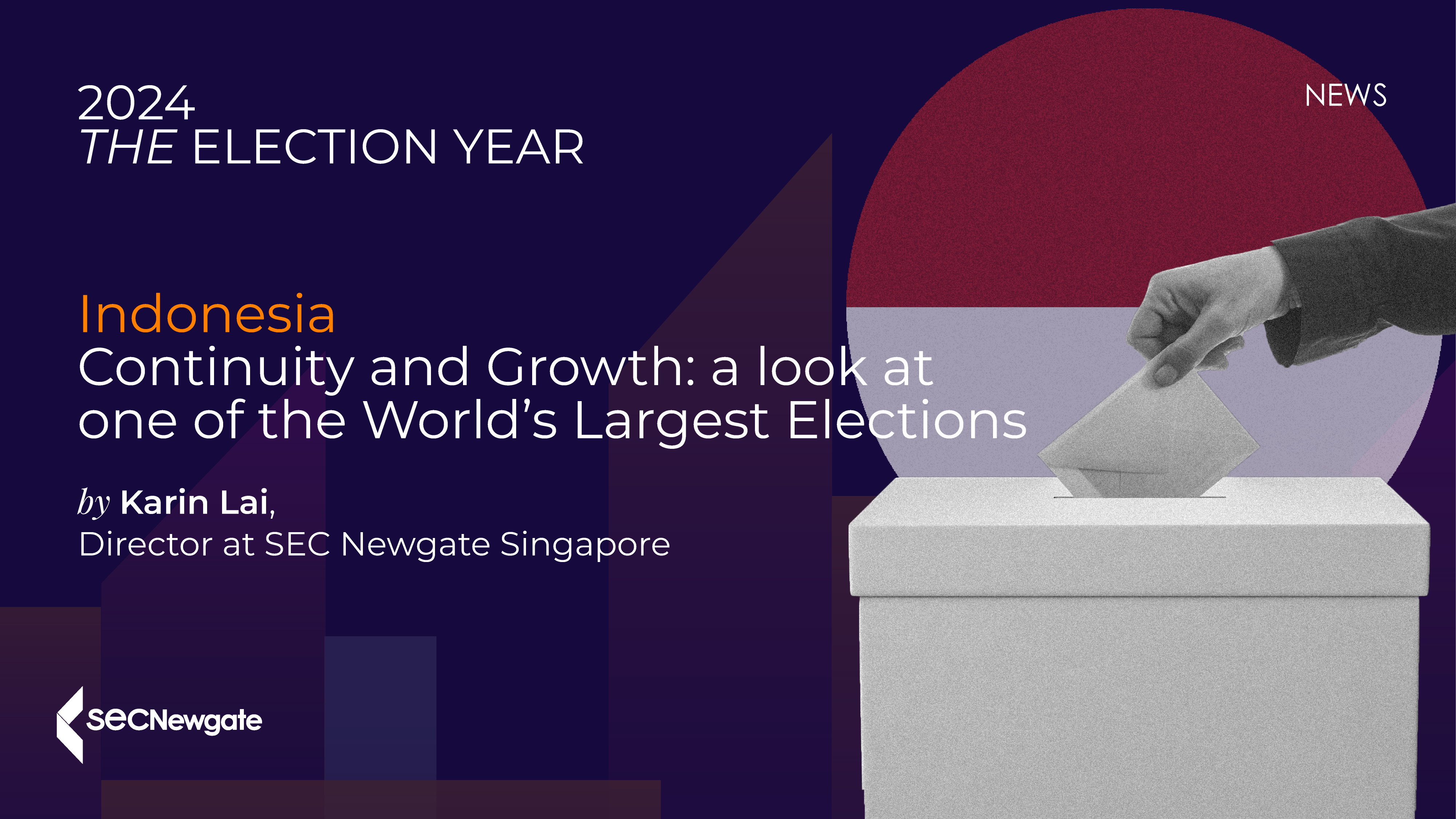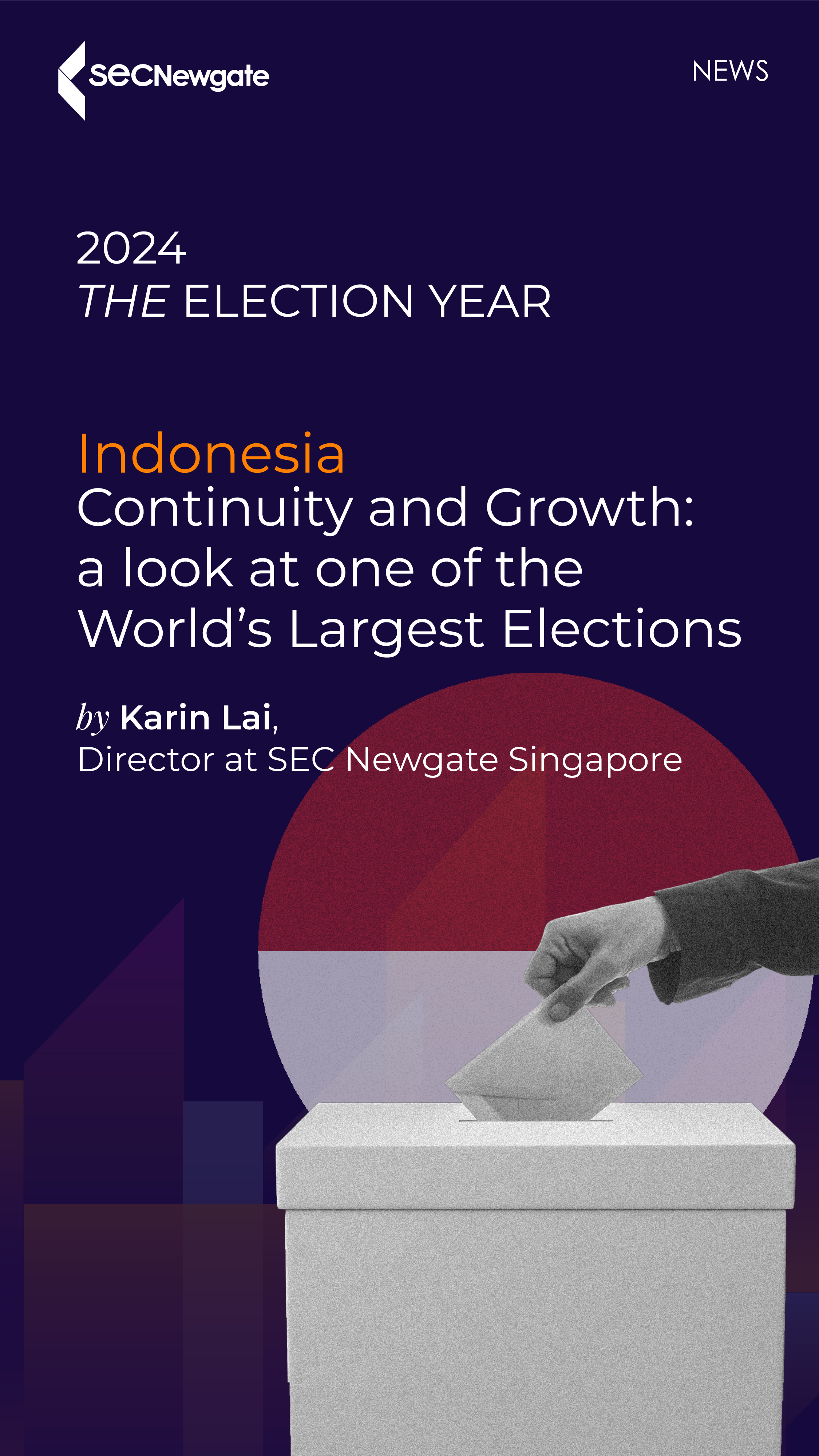About the Author
Promising Continuity
Three pairs of candidates ran for president and vice-president, with the first pair comprising front runner and defence minister Prabowo Subianto, 72, in his third try for the top seat, and the mayor of Solo, Widodo’s elder son Gibran Rakabuming Raka, 36. Former Jakarta governor Anies Baswedan, 54, was running with former minister of manpower and transmigration Muhaimin Iskandar, 57, while the third pair comprised former Central Java governor Ganjar Pranowo, 55, and former chief security minister Mahfud MD, 66.
At the time of writing, unofficial “quick counts” by independent pollsters showed Prabowo and Gibran in a decisive lead, with close to 60% of votes. Anies trailed with around 25%, followed by Ganjar with around 17%. Prabowo’s political party, Gerindra, looks set to come in third in the legislative election that took place on the same day, but is expected to become the lead party in a ruling Onward Indonesia Coalition.
The results come after 75 official days of fierce campaigning, during which Prabowo committed to continuing Widodo’s ambitious economic development and infrastructure projects, including moving the administrative capital from Jakarta to Nusantara in East Kalimantan, and positioning the country as a key player in the global electric-vehicle supply chain. He and his running mate have also pledged to transform Indonesia into a developed economy by 2045 by building infrastructure and tapping more of Indonesia’s abundant natural resources.
Interestingly, Prabowo and his campaign strategists leveraged AI and social media platforms such as TikTok to soften his image by portraying him as a cuddly grandfather. The strategy has been successful in drawing a substantial youth following to Prabowo, with videos of his distinctive dance moves, reminiscent of Javanese martial arts, receiving millions of views. According to pollster Indikator Politik Indonesia, TikTok was the second-most used source of information on politics during the campaign period, after television.
A President for Everyone
For now, Prabowo has vowed to protect the people and to be a president for all Indonesians. He has promised to continue programmes such as direct cash assistance for lower income groups, while introducing initiatives to boost health and education outcomes. He has also pledged free lunches and milk in schools, nutritional assistance for toddlers and pregnant women, and aims to achieve self-sufficiency in food, energy and water.
A decisive victory for Prabowo removes political uncertainty and sends a clear signal to global businesses that the policy directions and fiscal discipline started by Widodo are likely to continue. Investors have been waiting on the sidelines and will step up investments in the G20 economy following the elections, judging from our conversations with banking, private equity and legal contacts.
With a burgeoning, young, energetic and digitally savvy population, Indonesia carries immense promise as it rapidly transitions from a developing nation to a developed one. By embracing digital transformation, and investing in education and social services, Indonesia has a good chance of achieving its growth ambitions. It will be up to Prabowo and Gibran to realise the country’s potential.

